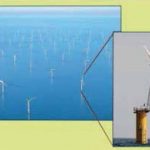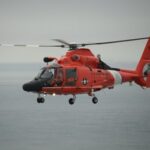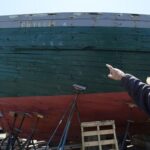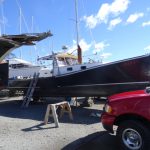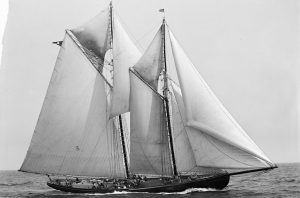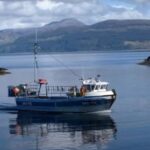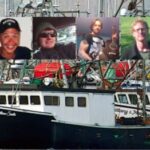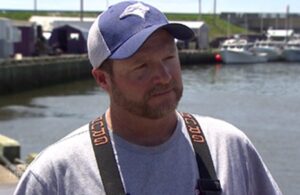Monthly Archives: June 2017
Ed Killer: Can a protected fish be a nuisance?
 Next week, in a hotel ballroom in Ponte Vedra Beach, there will be a lot of discussion about a controversial fish. Red snapper, a fish protected from harvest in federal waters since 2009, will be one of several species of fish evaluated during the South Atlantic Fishery Management Council’s quarterly meeting June 12-16. The Snapper Grouper advisory committee will convene Tuesday and Wednesday to discuss a variety of issues about some 80 species of fish they are charged with managing. Chief among the issues will be complaints from fishermen who claim the red snapper has risen to nuisance phase in its population numbers off Florida’s coast.,, But red snapper fishing in Florida is a little like Charles Dickens’ “Tale of Two Cities.” click here to read the article 14:45
Next week, in a hotel ballroom in Ponte Vedra Beach, there will be a lot of discussion about a controversial fish. Red snapper, a fish protected from harvest in federal waters since 2009, will be one of several species of fish evaluated during the South Atlantic Fishery Management Council’s quarterly meeting June 12-16. The Snapper Grouper advisory committee will convene Tuesday and Wednesday to discuss a variety of issues about some 80 species of fish they are charged with managing. Chief among the issues will be complaints from fishermen who claim the red snapper has risen to nuisance phase in its population numbers off Florida’s coast.,, But red snapper fishing in Florida is a little like Charles Dickens’ “Tale of Two Cities.” click here to read the article 14:45
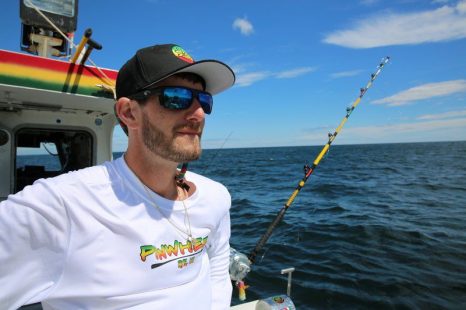
$386 split top boats going into ‘Wicked Tuna’ finale
Capt. Dave Carraro of the FV-Tuna.com said he knew his team of fishermen was the New England Patriots of the fleet going into season six of “Wicked Tuna” because he had won the competition three out of the last five seasons. Now in episode 12, the Gloucester captain is again at the top of the leader board along with Capt. Tyler McLaughlin of the Rye, New Hampshire-based Pinwheel.
Sunday night is the season finale of the National Geographic Channel’s hit series, based out of Gloucester. Viewers around the globe tune in to watch the drama and laughs as teams of fishermen hunt the giant bluefin tuna in the North Atlantic. “I knew we were going to have a bigger target on our back now than ever before,” said Carraro at the start of the season. click here to read the story 13:38
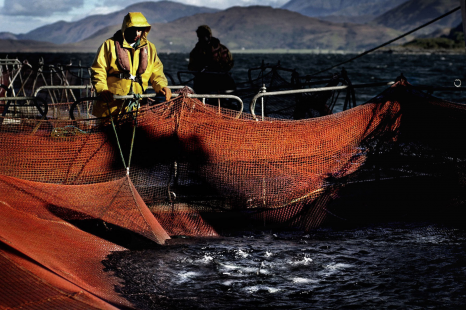
Scottish government accused of colluding with US drug giant over fish farm pesticides scandal
The Scottish Government allowed a US drug company to secretly rubbish a scientific study blaming one of its pesticides for killing wildlife in Scottish sea lochs. The Sunday Herald has uncovered that the £76 billion New Jersey multinational, Merck, hired reviewers to criticise evidence in a scientific study that the company’s fish farm chemical was causing widespread environmental damage. The scientists behind the study and the Scottish Environment Protection Agency (Sepa) privately protested about Merck’s involvement. But they were overruled by government and salmon industry officials who insisted that the company’s role should be kept secret. Merck’s behind-the-scenes influence has been exposed by more than 70 megabytes of internal documents released by the Crown Estate under freedom of information law. They also show that government and industry agreed not to issue a press release on the study. click here to read the story 13:23
North Pacific Fishery Management Council meeting in Juneau, AK June 5 – 13, 2017
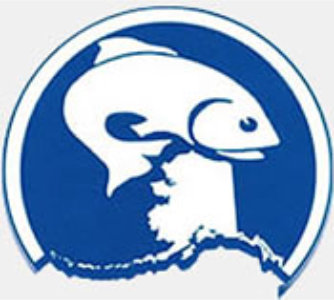 The North Pacific Fishery Management Council will meet the week of June 5, 2017 at the Centennial Hall Convention Center, 101 Egan Drive in Juneau, Alaska. The AGENDA and SCHEDULE are available. The Council meeting will be broadcast at https://npfmc.adobeconnect.com/june2017 12:46
The North Pacific Fishery Management Council will meet the week of June 5, 2017 at the Centennial Hall Convention Center, 101 Egan Drive in Juneau, Alaska. The AGENDA and SCHEDULE are available. The Council meeting will be broadcast at https://npfmc.adobeconnect.com/june2017 12:46
Gulf of Mexico Fishery Management Council meeting in Naples, FL June 5 – 8, 2017
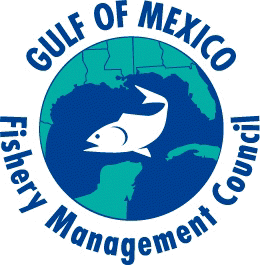 The Gulf of Mexico Fishery Management Council will meet June 5 – 8, 2017 at the Naples Grande Beach Resort 475 Seagate Drive Naples, FL 34103. The meeting will convene on the following days and local times: View Council Agenda View Briefing Materials, click here Register for April Council Webinar, click here 12:32
The Gulf of Mexico Fishery Management Council will meet June 5 – 8, 2017 at the Naples Grande Beach Resort 475 Seagate Drive Naples, FL 34103. The meeting will convene on the following days and local times: View Council Agenda View Briefing Materials, click here Register for April Council Webinar, click here 12:32
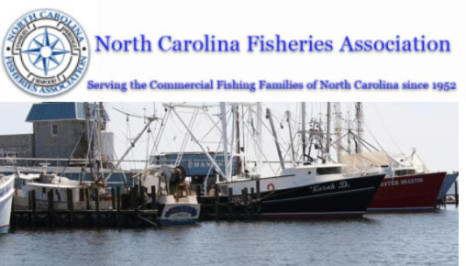
North Carolina Fisheries Association Weekly Update for June 2, 2017
Click here to read the Weekly Update, to read all the updates, Click here 11:59
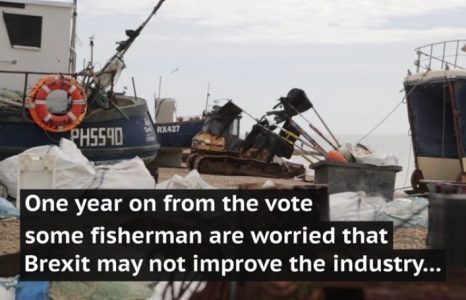
Brexit vanguard abandoned by Theresa May: UK fishermen cut adrift by political elite
During the 2016 EU referendum, fishing quotas briefly became a major talking point in UK politics. Prominent Leave campaigners used the restrictive quotas to demonstrate the affect the EU had on British business, with then Ukip leader Nigel Farage even joining a flotilla of fishermen in a protest on the Thames. Fishermen across the country became a politically mobilised group during the referendum campaign, with groups like Fishing for Leave gaining significant coverage. However, one year on from the vote, interest in the issue seems to have cooled. “I do wonder whether anything will actually change, I really do” said Hastings fishermen Mark Woodley. “And a lot of the other fisherman are the same. We was hoping for great things, but she hasn’t actually mentioned anything about fishing, Theresa May, has she?” click here to read the story 11:18
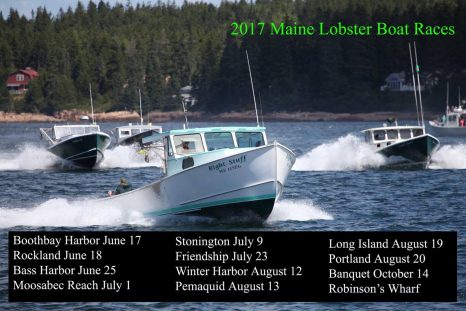
Stonington Lobster Boat Races, The Fastest Boats on the Coast! – July 9th, 2017
In addition to the standard MLBRA race classes, Stonington hosts the John’s Bay Boat Company Exhibition Race, the Jimmy Stevens Cup awarded to the fastest Working Lobster Boat, and new this year, the Deer Isle Exhibition Race (hailing port of the vessel must be Deer Isle, Stonington, or Little Dear Isle). Click here to read the notice, contact info, and a schedule of the event. Lets Go Racing!!! 10:18
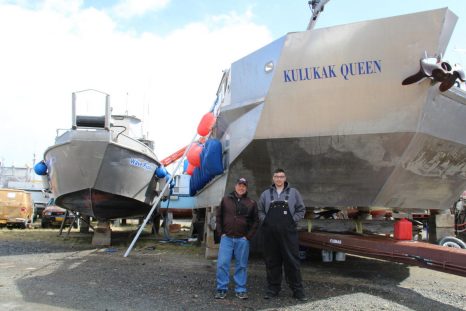
Frank Woods has a tender side
Bristol Bay’s commercial fishery needs tenders, and a lot of them, to do what it does. Tenders take the massive amount of sockeye caught by a large fleet and bring them, chilled, to shore-based processors. Of course Bristol Bay’s iconic 32-foot drift boats usually get the glory, and entering the PAF boat yard in Dillingham one sees hundreds of them. But grabbing some attention up front in the yard is Frank Wood’s 60-foot tender with its large, blue buoys hanging off the sides. Woods started a tendering business called Paradise Logistics just a few years ago, and ahead of this season his sons are busy at work getting the vessel ready to launch. click here to read the story 08:36
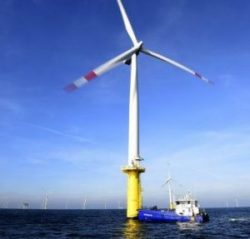
Environmentalists outraged after ‘green’ wind turbines murder family of whales
Some environmentalists are saying wind turbines pose a threat to whales after a family of minke whales were found dead in the United Kingdom. According to reports by the Times (London) and Daily Caller, a young minke whale was found dead in the United Kingdom on May 20. Its mother was found dead on a nearby beach the same day, and a third whale washed ashore on May 21. It’s believed the three whales were part of the same family. According to marine wildlife experts, the whales were likely disoriented by nearby wind turbines, which can affect the sonar whales use to navigate. click here to read the story 19:57
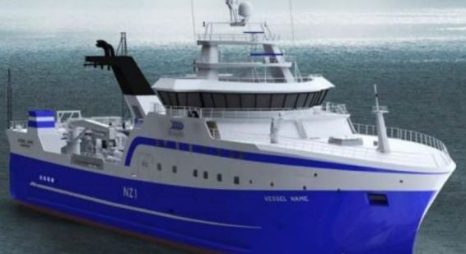
New Zealand: Sealord’s new $70m freezer trawler will shortly be recruiting staff
Sealord’s new $70million freezer stern trawler will be making regular appearances in Dunedin next year, sharing its port calls equally with its home port, Nelson. The 81.7m-long stern trawler is barely into week 20 of its build in Norway. The first few of eight “blocks” that will be joined together to make the hull have recently been delivered from Poland. The new vessel will expand Sealord’s overall fleet to six owned vessels and two leased and is expected to be operational from May next year. Once finished, it would complete sea trials in Norway by March next year, then would be partially rigged during its 40-day delivery passage to Nelson.,, Gillanders said unemployment in the fishing industry was at present quite low and filling vacancies was “challenging”. click here to read the story 13:17
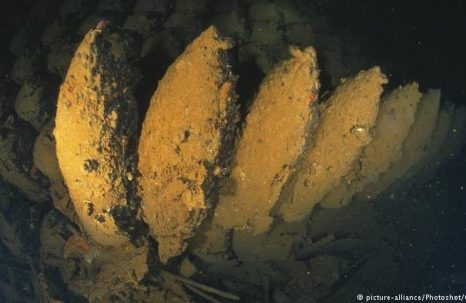
Unexpected Nazi-era legacy: Fish tumors
German researchers have uncovered a 25 percent incidence of tumors among a type of flatfish inhabiting one area of the Baltic Sea, close to the northern German city of Kiel. They believe the cancerous growths found on the species known as the common dab could be linked to the estimated 1.6 million of tons of armaments that were dumped at the bottom of the Baltic and North Seas at the end of World War II. The high prevalence compares to a 5 percent tumor rate in three other areas of the Baltic, researchers said. Presenting their evidence to a conference in Rostock on Monday, scientists from the Thünen Institute of Fishing Ecology said the rate of tumors among dab fish in shallow coastal waters was much higher than previously thought. Empasizing that their findings are preliminary, researchers warned that as the munitions continue to rust and leak discharge, the environmental impact of the mass dumping of Nazi-era weapons is likely to be much greater than earlier estimates. click here to read the story 11:18
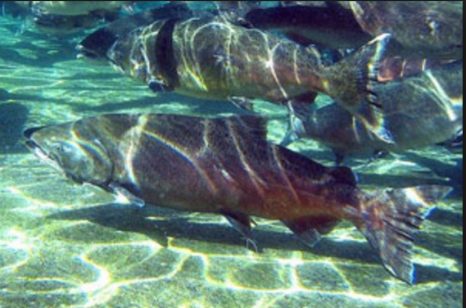
So many kings
With the commercial catch of king salmon off the mouth of the Copper River steadily growing, the Alaska Department of Fish and Game has gone all in on the idea that a preseason forecast that suggested a return of only 29,000 of the big fish was in error. The agency on Friday announced it will lift a restriction that limited subsistence fishermen on the Copper to two fish, and open sport fisheries along the river it had ordered closed before the season even began. The action comes amid mounting public pressure for the agency to see the annual catch of kings, or Chinook as they called elsewhere, is shared among subsistence, commercial, sport and personal-use fishermen. The subsistence fishermen, who are supposed to have a legal priority on harvest, started the season limited to two fish, and told they would get only one-fifth slice of an allowable harvest of only 5,000 kings. That whole plan has now been ditched. click here to read the story 10:37
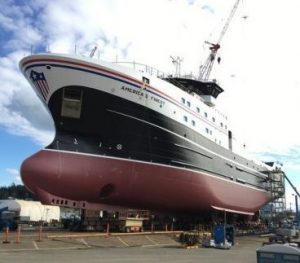
New Anacortes-built trawler could be grounded by old law, endangering two local firms
The largest, most modern American-made trawler built in nearly three decades may be barred from fishing in U.S. waters, with financial repercussions to its local builder and buyer “so draconian that neither company may survive.” That’s the scenario painted by the law firm that Anacortes shipyard Dakota Creek Industries has hired to seek a rare waiver from a century-old law called the Jones Act, which they acknowledge wasn’t properly followed when the shipyard began building the state-of-the art, $75 million vessel Americas Finest. The shipyards mistake using too much foreign steel that was modified before coming into the U.S. could mean the advanced ship must be sold abroad at a big loss. click here to read the story 08:40
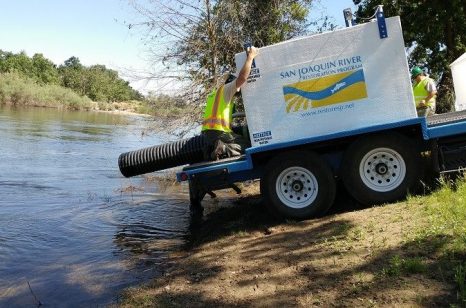
With a Lot of Help, Chinook Salmon Return to the San Joaquin River
In California’s Central Valley, dusty dry riverbeds fill with water that for decades has been diverted for farmers and cities. Hatchery-reared salmon – bred with taxpayer funds – are being reintroduced in hopes of rebooting ancient populations that disappeared in the 1940s, casualties of California’s ceaseless search for new water sources. The San Joaquin River, the state’s second largest, is primed for its comeback. After the Sacramento River, the San Joaquin is California’s most important river. It provides some of the state’s largest agricultural operations with water as it stretches north from Fresno before finally emptying into the Sacramento-San Joaquin River Delta – the source of drinking water for an estimated 25 million Californians. The process of damming, diverting and plumbing the 366-mile river for irrigation and urban water use leaves main portions of the river dry during parts of the year. Following the opening of Friant Dam in 1942, entrepreneurs gobbled up the river’s fertile wetlands and replaced them with crops and gravel mining operations. The dam was a boon to the already prospering agricultural region. But as water-intensive crops like almonds and pistachios went in, the native Chinook salmon disappeared. click here to read the article 17:25
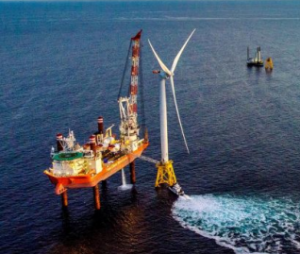
Deepwater Wind accepts Maryland PSC approval; will move forward on Skipjack Wind Farm
Deepwater Wind LLC accepted the Maryland Public Service Commission’s approval of its Skipjack Wind Farm project, a planned 15 turbine wind farm 19.5 miles off the coast of Maryland the company announced in a press release in May. The plant will provide 120 megawatts, what the company says is enough power to support 35,000 homes. It is expected to cost $720 million. According to the Skipjack wind farm application in November, Deepwater Wind also committed to $6,000,000 into the Maryland Offshore Wind Business Development Fund. Deepwater Wind also signed contract to build a wind farm off the coast of Long Island earlier this year. click here to read the story 16:11
Andy Mays of Southwest Harbor – Scallop Diver for Life
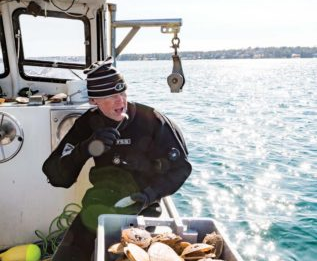 It’s winter on Mount Desert Island. Temperatures are just above 20 degrees, and tomorrow a nor’easter will blow snow sideways into drifts. But today the sun is out, and the wind is about nil. That’s good, because we’re on the deck of a fishing boat at the mouth of Somes Sound, and diver Andy Mays is suited up and sitting on the deck rail. With an air tank on his back and a couple of mesh bags, he’s about to drop into the frigid water to dive for scallops.,,,It was February in the 2015 scallop season, a few weeks before the annual Maine Fishermen’s Forum in Rockland. Just about everyone in the industry gathers for the marine trade show, Mays explains, to check out the latest fishing gear, socialize, and talk about fishery issues before the busiest months of lobster season. But he wasn’t feeling well in the months before the forum,,, A great article about a great guy, that faced a life altering event head on. Some great images, and I recommend reading his story! Click here to read 15:18
It’s winter on Mount Desert Island. Temperatures are just above 20 degrees, and tomorrow a nor’easter will blow snow sideways into drifts. But today the sun is out, and the wind is about nil. That’s good, because we’re on the deck of a fishing boat at the mouth of Somes Sound, and diver Andy Mays is suited up and sitting on the deck rail. With an air tank on his back and a couple of mesh bags, he’s about to drop into the frigid water to dive for scallops.,,,It was February in the 2015 scallop season, a few weeks before the annual Maine Fishermen’s Forum in Rockland. Just about everyone in the industry gathers for the marine trade show, Mays explains, to check out the latest fishing gear, socialize, and talk about fishery issues before the busiest months of lobster season. But he wasn’t feeling well in the months before the forum,,, A great article about a great guy, that faced a life altering event head on. Some great images, and I recommend reading his story! Click here to read 15:18
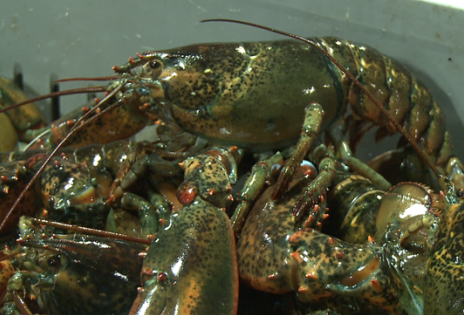
Scientists expect some decline in Gulf of Maine lobster numbers, but ‘no calamity’
Concern about the effects of climate change have reached Maine’s lobster industry, where there are questions whether the state’s record lobster catches can be sustained. There has been wide agreement among fishermen and scientists in recent years that the waters of the Gulf of Maine have been getting steadily warmer as a result of the changing climate. In fact, researchers say the Gulf water have warmed more quickly than most other parts of the ocean. University of Maine researcher Dr. Rick Wahle said warmer water in the Gulf has been one factor in the big jump in lobster landings. He said a reduction in the number of lobster predators and conservation efforts by fishermen are also factors. click here to read the story 14:53
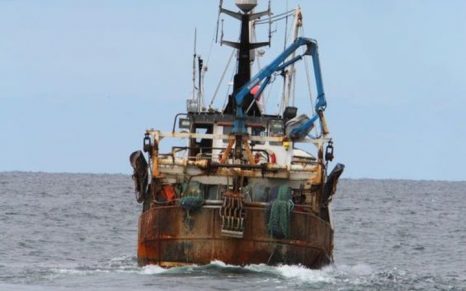
One in four crew members injured on fishing boats
A Neilsen survey commissioned by Maritime New Zealand and WorkSafe found 28 percent of crew members – or more than one in four workers – have suffered a significant injury while a further 26 percent have experienced a near-miss. Most of the injuries were to hands, lower back and the spine, but the outcome of a mishap at sea could be much worse. Since 2010, 25 crew members have died and the families of nine of those lost at sea did not have the comfort of bringing a body home. The Accident Compensation Corporation has had an average 966 active commercial fishing claims over the past five years and in 2016 it received 633 new claims, which have grown on average 3 percent a year since 2009. Last year ACC paid out $5.1 million in the wider commercial fishing bracket, slightly down on the average over the last six years of $5.7 million. click here to read the article 11:01
Jury delivers for ‘Deadliest Catch’ crabber maimed by firework
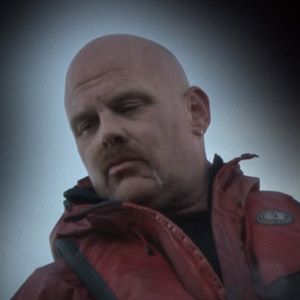 A “Deadliest Catch” crabber maimed by a fireworks explosion aboard the fishing vessel Time Bandit has been awarded $1.35 million by a King County jury. Jan. 13, 2013, should have been a good day for David “Beaver” Zielinski, who was headed out to sea for another season aboard the Hillstrand brothers’ crab boat. Instead, Zielinski’s hand was badly injured when a Time Bandit-brand firework exploded in the launcher he was holding. The explosion that left Zielinski injured occurred as the “Deadliest Catch” crew was filming another Bering Sea snow crab season of the Discovery documentary series. Time Bandit captains Johnathan and Andy Hillstrand have been heavily featured on the program, which is currently in its 13th season. Zielinski sued the Hillstrands’ companies two years ago in King County Superior Court. click here to read the story 09:20
A “Deadliest Catch” crabber maimed by a fireworks explosion aboard the fishing vessel Time Bandit has been awarded $1.35 million by a King County jury. Jan. 13, 2013, should have been a good day for David “Beaver” Zielinski, who was headed out to sea for another season aboard the Hillstrand brothers’ crab boat. Instead, Zielinski’s hand was badly injured when a Time Bandit-brand firework exploded in the launcher he was holding. The explosion that left Zielinski injured occurred as the “Deadliest Catch” crew was filming another Bering Sea snow crab season of the Discovery documentary series. Time Bandit captains Johnathan and Andy Hillstrand have been heavily featured on the program, which is currently in its 13th season. Zielinski sued the Hillstrands’ companies two years ago in King County Superior Court. click here to read the story 09:20
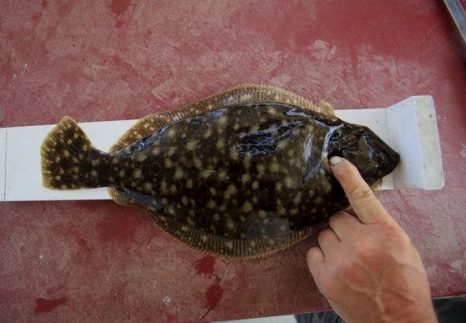
Feds threaten shutdown of N.J. Fluke fishery as showdown escalates
Call it the Great Flounder War of 2017. A simmering battle between New Jersey recreational fisherman and the federal agency governing fishing along the Atlantic Coast has now escalated — with potentially disastrous consequences for the fishermen. In a teleconference on Thursday morning, the Atlantic States Marine Fisheries Commission (ASMFC) officially found New Jersey to be out of compliance with federal regulations. The matter is now headed to U.S. Secretary of Commerce Wilbur Ross for a final decision. If Ross agrees with the recommendation, both recreational and commercial fluke fishing could end up banned altogether in the Garden State. ,, And here’s where things get really sticky: If Sec. Ross finds New Jersey to be out of compliance, he’d have the option of imposing a moratorium on summer flounder fishing in the state — a moratorium that would also apply to commercial fishermen, who thus far have been in compliance with the feds. (Earlier this year, the state’s commercial fishermen agreed to lower fishing quotas imposed by ASMFC.) click here to read the story 08:19
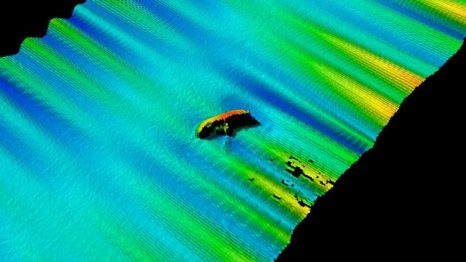
Where is the lost fishing boat Tammy? Two wreck hunters think they know.
Calm seas and clear weather greeted the fishing boat Tammy as it set out from San Pedro on July 11, 1994, to cast its nets for sea cucumbers — and then disappeared. The 40-foot, steel-hulled vessel carried a crew of four Vietnamese fishermen that night. Two of their bodies were found the next day in the shipping lanes off Newport Beach. The others were never recovered. “To this day, we do not have even a death certificate for my dad because they never found him,” Thai Minh Ta said of Cong Minh Ta, the boat’s owner. Now, more than two decades later, two men with extensive experience in researching and identifying submerged wrecks think the long-lost fishing boat might rest on the ocean floor in 70 feet of water near the entrance to the Port of Long Beach. click here to read the story 20:10
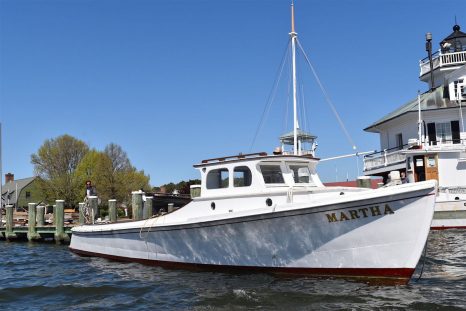
CBMM’s floating fleet gets a spring spruce up
Under the guidance of Chesapeake Bay Maritime Museum Shipwright James DelAguila, the maintenance season for CBMM’s floating fleet of historic vessels once again is in full swing, with all work done in full public view. As is typical this time of year, work proceeds with the most-used and popular vessels, including the 1920 buyboat Winnie Estelle, which received some system upgrades and a fresh coat of paint, thanks to CBMM’s dedicated volunteers and staff. The Smith Island crab scraping replica Volunteer and crab dredger Old Point each are receiving minor carpentry repairs, along with fresh coats of paint in advance of their busy seasons. click here to read the article w/2 more images 18:30
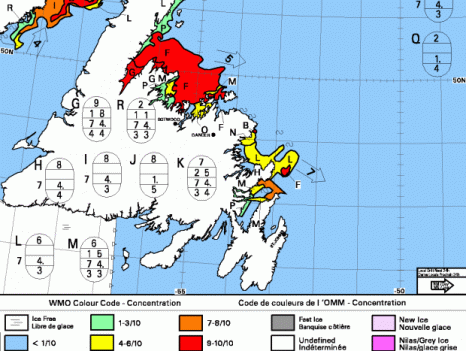
Twillingate fishery stuck in ice, shrimp plant future uncertain
A pair of dark clouds loom over the fishery in Twillingate, and good weather might improve only one of them. Long-lasting sea ice has put a chill on traffic at the town’s wharf, meaning less work for dockhands and a slump at the town’s grocery stores. That ice might also be part of the reason why plant workers are still searching for answers about their shrimp processor. The town hasn’t seen ice last this long for decades, according to Gord Noseworthy, mayor and harbour master. “This time last year, where all your boats is coming and going, you looked up there and there was eight and nine tractor trailers out there at a time, all taking full loads and going.” The town’s grocery stores, oil companies and liquor store have also been feeling the pinch,,, the future of the shrimp plant is not so certain. click here to read the story 17:27
11th International Conference and Workshop on Lobster Biology and Management
 The 11th International Conference and Workshop on Lobster Biology and Management is taking place June 4-9 in Portland, ME. The agenda and related event listings are available click here The final full program and abstract booklet is posted here as a downloadable pdf file. This file has been updated since the program went to print, so it has the most up-to-date list of attendees and abstracts. 16:16
The 11th International Conference and Workshop on Lobster Biology and Management is taking place June 4-9 in Portland, ME. The agenda and related event listings are available click here The final full program and abstract booklet is posted here as a downloadable pdf file. This file has been updated since the program went to print, so it has the most up-to-date list of attendees and abstracts. 16:16
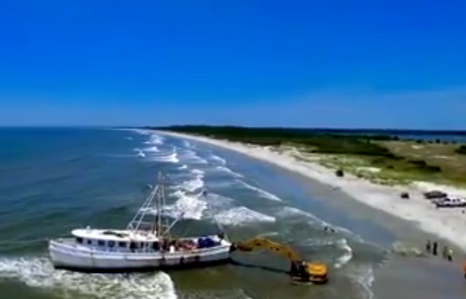
Beached shrimp boat removed from North Carolina’s Bird Island
David Bartenfield first learned to sail when he was 12 years old and has continued to do so for over 40 years. Over Memorial Day weekend, he saw something on North Carolina’s Bird Island he probably won’t forget anytime soon – a shrimp boat beached on the shore. Over Memorial Day weekend, he saw something on North Carolinas Bird Island he probably won’t forget anytime soon, a shrimp boat beached on the shore. According to Chris Humphrey, a civilian controller with the U.S. Coast Guard in North Carolina, the boat was beached on May 25 after it lost power and ran ashore. Video, click here to read the story 15:19 Here is a great collection of image’s and video of the Miss Carolyn Ann thanks to Bill Keziah, click here
Coast Guard concerned about drug crisis – Personnel receive training from drug-recognition experts
 The addiction crisis is also affecting New England by sea, and the U.S. Coast Guard is trying to get ahead of the problem in the maritime industry. Crews at U.S. Coast Guard Sector Northern New England headquarters, in Portland, Maine, oversee search and rescue, safety and marine environment issues along the Maine and New Hampshire coastlines, along with Lake Champlain in Vermont and part of New York, too. The addiction crisis has also become a key focus for the military branch. The main reason for boarding fishing vessels and pleasure boats has been to make sure they’re operating safely, but crews also check for signs of impairment. Now, in addition to alcohol, personnel are getting training from drug-recognition experts. click here to read the story 12:11
The addiction crisis is also affecting New England by sea, and the U.S. Coast Guard is trying to get ahead of the problem in the maritime industry. Crews at U.S. Coast Guard Sector Northern New England headquarters, in Portland, Maine, oversee search and rescue, safety and marine environment issues along the Maine and New Hampshire coastlines, along with Lake Champlain in Vermont and part of New York, too. The addiction crisis has also become a key focus for the military branch. The main reason for boarding fishing vessels and pleasure boats has been to make sure they’re operating safely, but crews also check for signs of impairment. Now, in addition to alcohol, personnel are getting training from drug-recognition experts. click here to read the story 12:11

Fishing safety campaign launched in New Zealand
On June 1st, Maritime New Zealand and the NZ Federation of Commercial Fishermen launch a safety campaign, at the Federation’s annual conference, aimed at commercial fishing boat crews and operators. The “Safe Crews Fish More” aims to establish a natural collaboration across the industry. Maritime NZ General Manager Maritime Standards, Sharyn Forsyth, said more than one in four fishing crew are injured every year (28% according to a study by research company, Neilsen, commissioned by WorkSafe and Maritime NZ). ACC statistics show most injuries are to hands, lower back, and spine. The campaign will initially run for a year, focusing two months at a time on the six risk areas: fatigue, manual handling, safety on deck, winches, uncovered machinery, and intoxication. click here to read the story 11:52
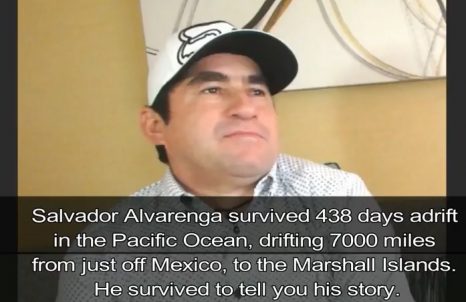
Survival Story: 438 Days Lost At Sea adrift in the Pacific Ocean
Great lessons of survival come along with extreme and life changing experiences. What would a 14 months drift on the ocean mean in terms of survival? Salvador Alvarenga knows it, for sure!
Alvarenga survived 438 days adrift in the Pacific Ocean, drifting 7000 miles from just off Mexico, to the Marshall Islands. His open 24′ fiberglass boat was disabled in a storm and nearly all his gear was swept overboard, disabled or had to be cut loose to keep the boat from sinking. His story is way beyond ordinary, and now he’s sharing it in this exclusive interview for Survivopedia readers. At first glance, I must admit that I was somewhat skeptical. In my mind, this feat pushed the boundaries of what I thought was possible. Either way, I wanted to know. As I researched, read, interviewed and analyzed his ordeal at sea, I grew increasingly convinced that his story true. As you can plainly see in the video interview below, it is difficult for him to talk about the experience to this day. click here to watch video, read the story 11:21
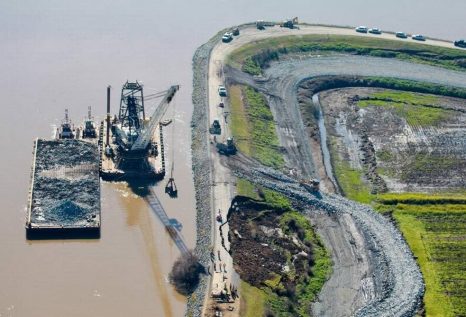
Jerry Brown sends a message to water agencies on the Delta tunnels – and it’s direct
Jerry Brown took an Old English turn from his Latin wisdom in 2012 by declaring: “I want to get s— done,” a reference to his vision for building two tunnels 30 miles long to move Sacramento River water south from the Delta to the rest of the state. And in 2015, addressing California water agencies, he offered pithy advice to naysayers: “Until you put a million hours into it, shut up.” Critics of the $15 billion project were greatly offended. “Two 40-foot diameter tunnels that can take the entirety of the Sacramento River at most times of the year of just seems like a bad idea to salmon fishermen,” said John McManus, executive director of the Golden Gate Salmon Association. “Rank-and-file salmon fishermen don’t trust them when they say, ‘Trust us.’ ”
There’s an element of hypocrisy on the part of Bay Area environmentalists, who drink water piped from Hetch Hetchy. Delta interests have all the water they could possibly want. But the fishing industry has a real beef. Dams deplete salmon runs. click here to read the story 10:45




































